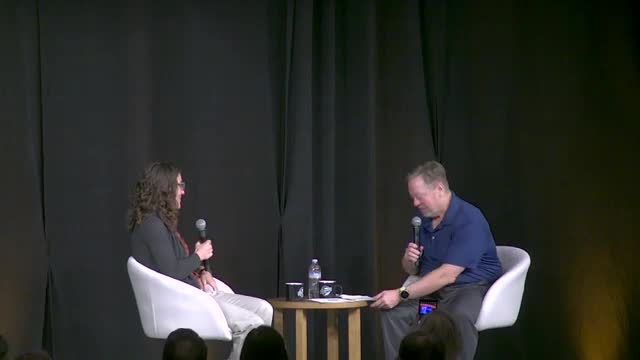University of Utah expert tells municipal officials conflict is normal, urges training
Get AI-powered insights, summaries, and transcripts
Subscribe
Summary
Dania, director of the Environmental Dispute Resolution Program at the University of Utah, told municipal officials at a Utah League of Cities and Towns event that conflict is a normal part of public work and recommended conflict-competence training after a statewide needs assessment found officials want more skills.
Dania, director of the Environmental Dispute Resolution Program at the University of Utah’s Wallace Stegner Center, told municipal officials at a Utah League of Cities and Towns event that conflict is a normal part of public work and municipal leaders would benefit from structured training to manage it.
Dania said the program conducted interviews with officials across the state and surveyed the league’s membership while developing training for municipal officials. “I like conflict. I work a lot on conflict. That's what I do,” she said, summarizing the program’s focus and findings. She said many officials learn conflict management on the job and expressed a strong interest in formal skills training.
The presentation explained the concept of “conflict competence” as a set of skills that help people work through intersecting needs and interests that are not easily reconciled. “Conflict competence is saying this just is. This is normal and natural,” Dania said, adding that emotional regulation, interest-based negotiation and practical habits can prevent escalation and produce better outcomes.
To illustrate, Dania told a familiar training anecdote about an orange: two teenagers argued over a single orange because they assumed both needed the same thing. “There is 1 orange in the kitchen, 2 teenage kids fighting over that orange,” she said, then described how a short conversation about each child’s underlying interest (juice versus rind) could have avoided the dispute. She used the story to emphasize that focusing on positions rather than interests often creates unnecessary conflict.
Dania tied the personal example to public settings, saying that officials and community members frequently operate from threat-driven reactions she described as the “amygdala” or “lizard brain,” which can escalate disputes. She recommended simple techniques—brief breathing or a practiced pause—to create space between stimulus and response and allow leaders to engage their prefrontal cortex for problem solving.
The needs assessment work with the Utah League informed the training design, Dania said: interviews and a membership survey found many officials rely on on-the-job learning and want more targeted skills for community-level disputes. She described training content candidates as emotional-regulation practices, interest-based negotiation, and tools to reframe positions into interests.
There was no formal action or vote recorded during the presentation. The moderator closed by thanking Dania and noting the league’s work with the University of Utah on the training effort.
The Utah League and the university will continue developing training materials for municipal officials; Dania did not provide specific dates or funding details at the event.
